Wonderful Introduction:
Only by setting off can you reach your ideals and destinations, only by working hard can you achieve brilliant success, and only by sowing can you gain. Only by pursuing can one taste a dignified person.
Hello everyone, today XM Foreign Exchange will bring you "[XM Official Website]: The cost of euro corporate bond insurance has decreased, and the short-term trend analysis of spot gold, silver, crude oil and foreign exchange on May 13". Hope it will be helpful to you! The original content is as follows:
The three major futures indexes all fell, Dow futures fell 0.22%, S&P 500 futures fell 0.39%, and Nasdaq futures fell 0.56%. European stocks rose and fell mixed, with the German DAX30 index rising 0.26%, the UK FTSE 100 index falling 0.14%, the French CAC40 index falling 0.01%, the European Stoke 50 index rising 0.04%, the Spanish IBEX35 index rising 0.28%, and the Italian FTSE MIB index rising 0.08%.
⑴ The default insurance costs of euro-denominated corporate bonds have declined. While optimistic, investors are cautious about the upcoming U.S. inflation data. ⑵ The U.S.-China trade agreement drives demand for risky assets. ⑶XTB's Kathleen Brooks pointed out that the April US CPI report will determine the impact of tariffs on instant inflation on Chinese goods. ⑷ iTraxx European Cross Index (tracking euro junk bond CDS) fell 3 basis points to 303 basis points.
As investors' confidence in US economic growth weakens, Australia's pension industry, with a total scale of $2.7 trillion, is reconsidering whether it will still hold dollar assets or even US dollars for a long time. Factors such as the high uncertainty of US economic policies have led to the failure of the US dollar to reflect the characteristics of safe-haven currencies. Australian exchange rate trading institutions realize that although some Australian pension fund companies have no major strategic adjustments, they have risks of hedging US dollar assets.demand. Cameron Sistermans, head of the Asia-Pacific Multi-Assets Department of Mercer Consulting, said that if the Australian dollar continues to appreciate against the US dollar, investors who are in Australia who hold US dollar assets will have to evaluate whether US dollar assets are worthy of holding.
⑴India's consumer price index (CPI) rose 3.16% year-on-year, the lowest level since July 2019, slowing for the sixth consecutive month. ⑵The CPI growth rate in March was 3.34%, and the market expected a growth of 3.3% in April, and the actual data was lower than expected. ⑶ Food inflation has dropped sharply, and the price increase of categories such as vegetables, beans, fruits, meat and fish has slowed down, driving overall inflation to fall. ⑷Economists expect food and vegetable prices to cool further, helping to maintain inflation below the Bank of India’s target level of 4%. ⑸ The slowdown in inflation provides more room for the RBI to cut interest rates. The central bank expects inflation to drop to 4.0% this fiscal year, but the risk of commodity price volatility still needs to be paid attention to.
⑴ The results of the Bank of America's global fund manager survey in May showed that investors' pessimism about global growth has been alleviated. ⑵ Net 59% of investors expect global growth to slow down, down from 82% in April. ⑶ The proportion of investors who expect the possibility of a recession has dropped sharply from 42% in April to 1%. ⑷ Currently, investors generally expect the economy to achieve a soft landing, that is, inflation will decline and the economy will not slow down significantly or fall into recession, which has risen from 37% in April to 61%. ⑸ The proportion of investors who are expected to experience a hard landing in the economy (i.e., slowing inflation in the recession) has dropped from 49% in April to 26%.
⑴European Bank for Reconstruction and Development (EBRD) lowered its economic growth forecast for the fourth consecutive time, and its economic growth rate forecast in 2025 was lowered from 3.2% in February to 3.0%. ⑵The German economic situation has an indirect impact on emerging European, Central Asian, Middle East and African economies covered by the European Bank for Reconstruction and Development. ⑶ The average tariffs on the European Bank of Reconstruction and Development are expected to rise from 1.8% to 10.5%, while Slovakia and Hungary have lowered their economic growth forecasts by 0.5 percentage points to 1.4% and 1.5% respectively due to their reliance on the automobile industry. ⑷ Beata Yavochick, chief economist at the European Bank for Reconstruction and Development, pointed out that companies are suspending investment and paying attention to changes in the global situation, and market access security has become a key issue. ⑸ Although the International Monetary Fund expects the region's debt-to-GDP ratio to remain stable, Yavochick believes that this forecast is "too optimistic" and that rising debt repayment costs may increase risks.
⑴ US President Trump has taken a more moderate stance on tariffs and the possible removal of Federal Reserve Chairman Powell, and investors believe that this will have less potential damage to the economy. ⑵China and the United States reached temporaryGlobal stocks rose on Monday after the tariff cut agreement, but the market still needs to pay attention to the progress of negotiations in the coming weeks and months. ⑶ George Salavelos, global head of foreign exchange research at Deutsche Bank, pointed out that the uncertainty of US fiscal policy is still very high, which may affect the trend of the US dollar. ⑷ Two key drivers of the US dollar trend are: the relative growth prospects of the United States with other countries and the difficulty of financing the double deficit (current account and fiscal deficit). ⑸ Deutsche Bank believes that recent news flow is relatively beneficial to other parts of the global economy, but is relatively unfavorable to the US dollar.
⑴ The US NFIB small business confidence index fell 1.6 points to 95.8 in April, the lowest level since October 2024, but slightly higher than the market expectations of 94.5. ⑵ The uncertainty index fell 4 points to 92, continuing the pullback from a record high in February, but is still far above the historical average of 68. ⑶ Business owners’ expectations for improved business environment fell by 6 percentage points to the 15% net ratio, partly due to the U.S. government’s hike in tariffs. ⑷ The proportion of business owners with expected increase in actual sales fell by 4 percentage points to net -1%. ⑸ In terms of employment, 34% of business owners reported that there were job vacancies that could not be filled, down 6 percentage points from March, the lowest level since 2021.
⑴Eurozone bond yields continued to rise on Tuesday as investors reduced expectations for the ECB rate cut and easing trade tensions between China and the United States also reduced concerns about a global recession. ⑵ German 10-year government bond yield rose 3.4 basis points to 2.671%, the highest level since April 10. ⑶2-year Treasury bond yield rose 1.9 basis points to 1.94%, also reaching a one-month high. ⑷ Traders currently expect the ECB deposit rate to be 1.81% by the end of the year, up from 1.67% last Friday. ⑸ The yield on the 30-year German Treasury bond rose 4.6 basis points to 3.13%, and long-term bonds were hit even more. ⑹Eurozone bonds fell along with other safe-haven assets on Monday as China and the United States reached a 90-day tariff suspension agreement, eased trade tensions. ⑺The yield on Italy's 10-year government bond rose 3.2 basis points to 3.71%, while the interest rate spread of Italy and Germany's bond yield was 102 basis points.
⑴Bank of England chief economist Peel said he was worried about the risk of upward inflation and believed that inflation could be higher than the central bank's target level of 2%. ⑵ Peel pointed out that there may be structural changes in the UK price and wage settings, which increases the complexity of inflation. ⑶ To ensure that CPI returns to its target level, monetary policy responses may need to be more durable. ⑷Pierre also mentioned the risk of a second round of inflation effect. ⑸ He believes that interest rates may need to be kept at levels higher than investors' expectations in order to cope with inflationary pressures.
⑴5On Tuesday morning, Tuesday morning, the Netherlands and the UK had relatively small fluctuations in natural gas prices, and the market was concerned about the progress of peace talks between Russia and Ukraine and the suppression of demand by continuing warm weather. ⑵The price of the Dutch benchmark monthly contract is 35.60 euros per megawatt-hour, which is approximately US$11.59 per million British thermal units, up 0.18 euros from the previous day. ⑶ The contract hit 36.25 euros per megawatt-hour on Monday, the highest level since April 16. Driven by news of a lowered tariffs between China and the United States, the positive economic outlook has driven the rise in natural gas prices. ⑷ The next day contract price of the Netherlands rose by 0.40 euros to 35.75 euros/MWh, while the next day contract price of the UK fell by 1p to 80.5p/hot. ⑸ LSEG analyst Wayne Bryan said that the current fundamentals of the natural gas market have not changed significantly, and trading prices on that day are expected to continue to fluctuate in range. ⑹ But he also pointed out that geopolitical events could trigger price volatility later this week. ⑺U.S. President Trump expressed his willingness to participate in Russia-Ukraine negotiations held in Turkey this week, while the EU said that even if Russia-Ukraine reached a peace agreement, it would not resume imports of energy from Russia.
Euro/USD: As of 20:18 Beijing time, the euro/USD rose, and is now at 1.1112, an increase of 0.22%. Before the New York Stock Exchange, the price of (EUR/USD) rose in recent intraday trading, trying to recover some of the previous losses and unload the obvious oversold conditions on (RSI), especially with the emergence of positive signals, prices remained stable under the resistance of 1.1150 despite the price increase, which represents the 50% Fibonacci correction level (from 1.0730 to 1.1572) of the last bull market on a short-term basis, indicating a temporary rise.
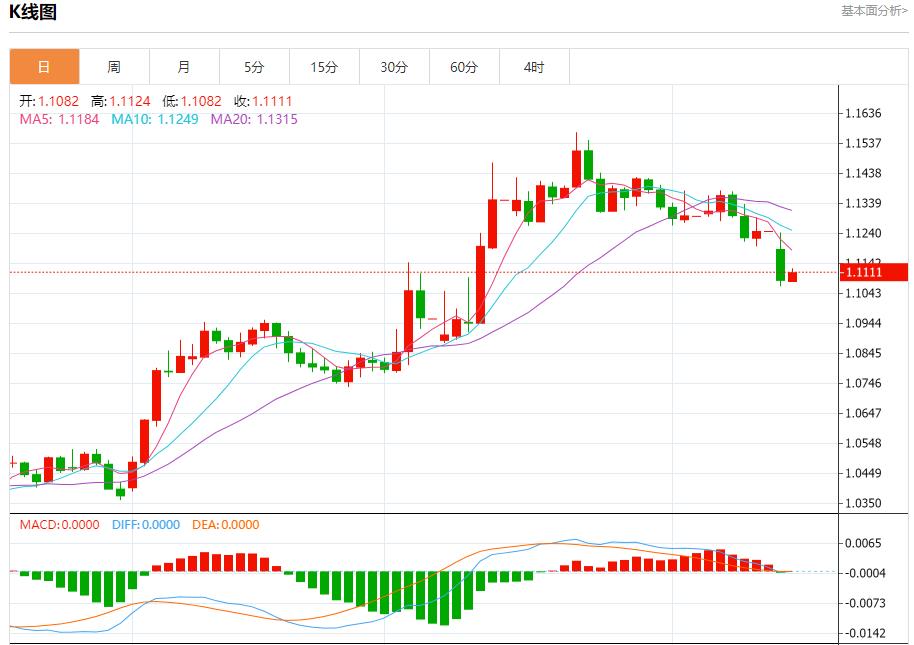
GBP/USD: As of 20:18 Beijing time, GBP/USD rose, now at 1.3216, an increase of 0.30%. Before the New York Stock Exchange, GBPUSD price rose in recent intraday trading due to the stable support level of 1.3160, providing it with some positive impetus to help it recover some of its previous losses.
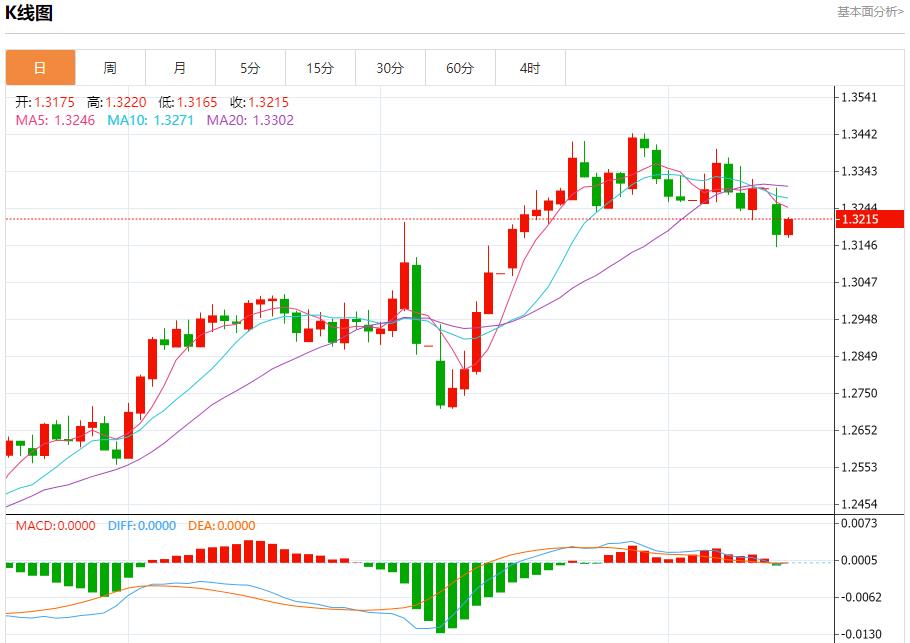
Spot gold: As of 20:18 Beijing time, spot gold rose, now at 3241.46, an increase of 0.20%. Before the New York Stock Exchange, the (gold) price rose in recent intraday trading, supported by positive signals on (RSI), and after reaching oversold levels, the $3,260 resistance was retested as the short-term bear correction trend dominated, and negative pressure continued as trading below the EMA50.
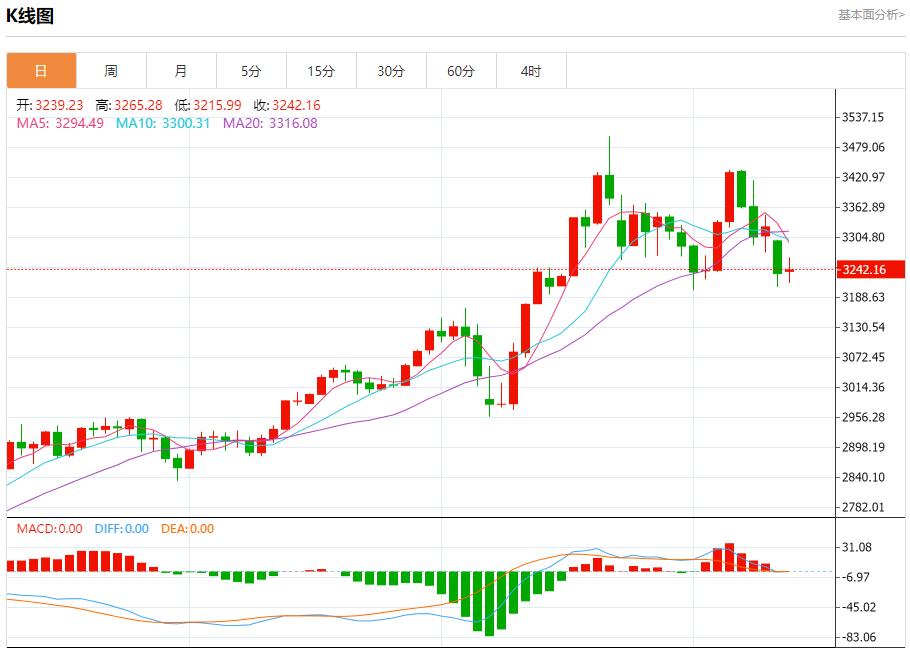
Spot silver: As of 20:18 Beijing time, spot silver rose to 32.688, up 0.34%. Before the New York market, the (silver) price rose in recent intraday trading, exceeding the negative pressure of EMA50 and supported by positive (RSI) signals, although it reached an overbought level, and its trading was accompanied by bullish correction bias on a short-term basis.
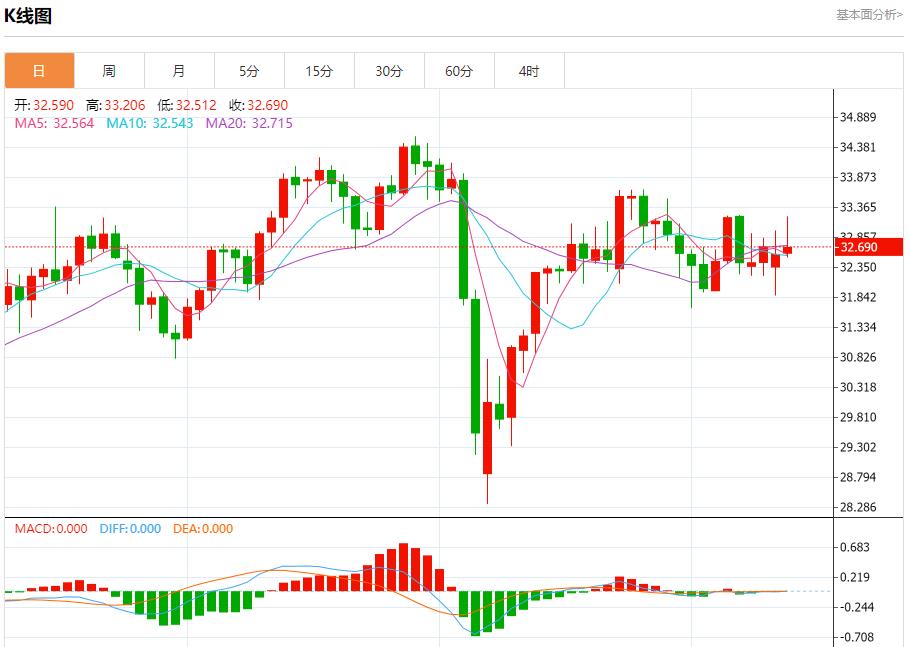
Crude Oil Market: As of 20:18 Beijing time, U.S. oil rose, now at 62.740, an increase of 1.29%. Before the New York Stock Exchange, the price of (crude oil) rose in the recent intraday trading and once again stabilized above the resistance of $61.70. This is a signal of the beginning of recovery, because the bull market correction trend dominates in the short term, and a slash appears. The RSI indicator reaches an oversold level, which is exaggerated compared to the price trend, indicating that a positive divergence has begun.
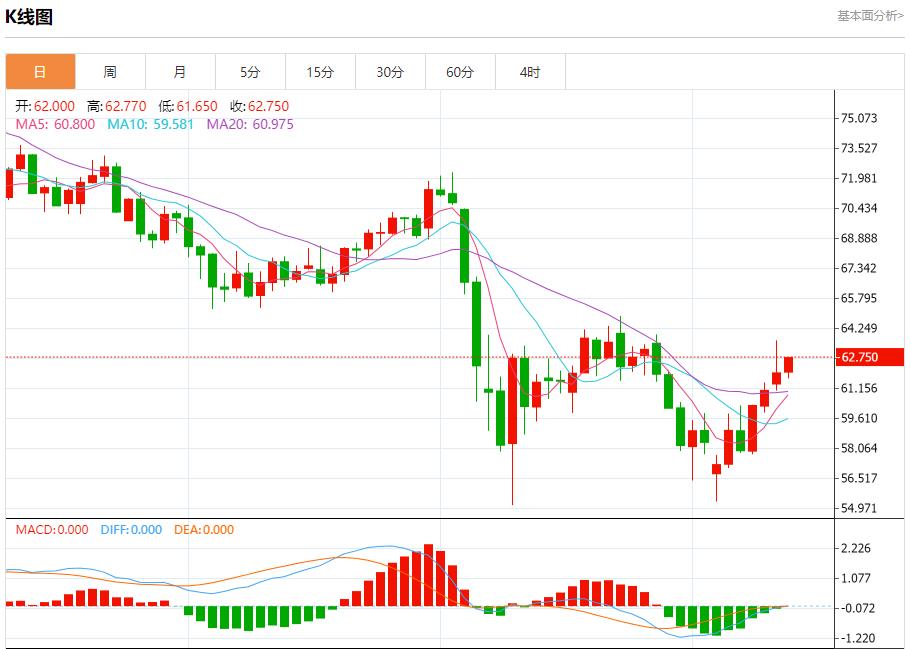
Economists such as Goldman Sachs Jan Hatzius said in a report on Monday, "We expect the Fed to start cutting interest rates three times later than our previous expectations (December, not our previous expectations in July), and will cut interest rates at each meeting instead of continuous cuts. ”
Morgan Stanley recently released a global macro strategy research report, which analyzes the US asset investment, currency trends, various investment strategies and macroeconomic outlook. Judging from the indicators of the United States' global GDP, market capitalization, and corporate profit share, the reasonable allocation weight of US stocks in the global investment portfolio is about 56% to 65%. In terms of the money market, the US dollar is expected to continue to weaken. Affected by factors such as yield differences, changes in the hedging ratio of foreign investors to the United States assets, and uncertainty in the United States, the US dollar faces downward pressure. /p>
Citi published a research report saying that the reduction in tariffs between China and the United States and the speed of reaching consensus is better than expected, which is beneficial to Chinese cross-border sellers and has a positive impact on the sales of Temu, an international e-commerce platform under Pinduoduo, in the United States. Citi raises Pinduoduo's target price to $165, and rating up to "buy".
The above content is about "[XM official website]: The cost of euro corporate bond insurance has decreased, and the short-term trend analysis of spot gold, silver, crude oil and foreign exchange on May 13" was carefully compiled and edited by the editor of XM Foreign Exchange.I hope it will be helpful to your transaction! Thanks for the support!
After doing something, there will always be experience and lessons. In order to facilitate future work, we must analyze, study, summarize and concentrate the experience and lessons of previous work, and raise it to the theoretical level to understand it.